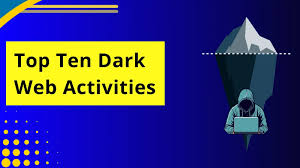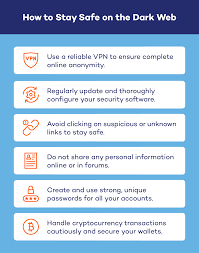Latest Dark Web Activities and How to Stay Safe
The dark web is a part of the internet that is not indexed by search engines like Google. It can only be accessed using special software, such as Tor. The dark web is known for hosting various illegal activities, but it also has legitimate uses, such as privacy protection and whistleblowing.
Recent activities on the dark web include the sale of illegal goods like drugs, weapons, and stolen data. Cybercriminals also use it to conduct scams and distribute malware. With the growing use of cryptocurrencies, transactions on the dark web have become harder to trace, making it a popular platform for illicit activities.
Despite its reputation, not everything on the dark web is illegal. Some people use it to avoid censorship or protect their anonymity. However, the risks associated with the dark web often overshadow these legitimate uses. It is crucial to understand these activities to stay safe and protect your information.
How Cybercriminals Operate on the Dark Web
Cybercriminals use the dark web for various illegal activities, including selling stolen data and hacking services. One of the main attractions of the dark web for criminals is its anonymity. With tools like Tor, users can hide their IP addresses, making it difficult to track their activities.
A common activity is the sale of stolen personal information, such as credit card details and social security numbers. This data is often obtained through data breaches or phishing attacks. Criminals then sell this information to other bad actors who use it for fraud or identity theft.
Another issue is the proliferation of hacking services. Some dark web marketplaces offer tools and services for hacking into systems or networks. These services can be used to commit further crimes, such as ransomware attacks or espionage.
Understanding how these criminals operate can help individuals and organizations take steps to protect themselves from becoming victims of these activities.
Recent Trends in Dark Web Activities

Recent trends on the dark web include the increasing use of cryptocurrencies and advanced encryption techniques. Cryptocurrencies like Bitcoin are favored for transactions because they offer a degree of anonymity. However, they are not completely untraceable, and law enforcement agencies are improving their ability to track these transactions.
There is also a rise in the use of ransomware. This type of malware encrypts a victim’s files, demanding a ransom payment to unlock them. Ransomware attacks have become more sophisticated, targeting large organizations and critical infrastructure.
Another trend is the growth of online marketplaces that facilitate illegal transactions. These marketplaces often operate under the guise of legitimate businesses, making them harder to detect and shut down.
Staying informed about these trends is essential for recognizing potential threats and taking appropriate measures to protect oneself.
How to Protect Yourself from Dark Web Threats
To stay safe from dark web threats, it is crucial to follow certain best practices. First, use strong, unique passwords for all your accounts. Avoid using the same password for multiple sites, as this can make it easier for attackers to gain access to your information.
Enable two-factor authentication (2FA) where possible. This adds an extra layer of security by requiring a second form of verification in addition to your password.
Be cautious with your personal information. Avoid sharing sensitive data online unless absolutely necessary. Be especially wary of unsolicited emails or messages that ask for personal information.
Keep your software and systems updated. Regular updates often include security patches that protect against vulnerabilities. Additionally, use reputable security software to help detect and block potential threats.
Lastly, educate yourself about common scams and phishing techniques. Being aware of how cybercriminals operate can help you recognize and avoid potential threats.
The Role of Law Enforcement and Government Agencies
Law enforcement and government agencies play a crucial role in combating dark web activities. They work to identify and dismantle illegal marketplaces and track down cybercriminals. These agencies often collaborate with international counterparts to address global cybercrime issues.
One key method they use is monitoring dark web forums and marketplaces. By infiltrating these spaces, they can gather intelligence and identify potential threats. They also work with cybersecurity firms to analyze and disrupt criminal activities.
Governments and law enforcement agencies also focus on improving regulations and laws related to cybercrime. This includes updating legal frameworks to address new and emerging threats.
While these efforts are essential, they are often challenged by the rapidly evolving nature of the dark web. Continued collaboration and innovation are needed to stay ahead of cybercriminals and protect individuals and organizations from harm.
Understanding the latest dark web activities and implementing strong security practices can help protect you from potential threats. Stay informed and cautious to safeguard your personal information and online safety.
How to Report Dark Web Activities
Reporting dark web activities is essential for combating cybercrime and protecting the online community. If you encounter illegal activities or suspect criminal behavior on the dark web, it is important to report it to the appropriate authorities.
- Contact Law Enforcement: If you come across illegal activities on the dark web, contact local or national law enforcement agencies. They can investigate the matter and take appropriate action.
- Report to Cybersecurity Firms: Many cybersecurity firms offer services to help identify and report dark web threats. They can analyze suspicious activities and provide guidance on how to address potential risks.
- Use Online Reporting Tools: Some organizations and platforms provide online tools for reporting cybercrime and illegal activities. These tools can help facilitate the reporting process and ensure that the information reaches the right authorities.
- Share Information with Industry Groups: Industry groups and organizations focused on cybersecurity may also accept reports of dark web activities. Sharing information with these groups can contribute to a broader effort to combat cybercrime.
Reporting dark web activities helps authorities track and dismantle illegal operations, ultimately contributing to a safer online environment. By taking action and cooperating with law enforcement, individuals and organizations can play a role in addressing the threats posed by the dark web.
Future Developments and Challenges
As technology evolves, so do the activities and challenges associated with the dark web. One potential development is the increasing use of advanced technologies, such as artificial intelligence and machine learning, by cybercriminals. These technologies could make it even more difficult to detect and prevent illegal activities.
Another challenge is the growing complexity of cyber threats. As cybercriminals become more sophisticated, they may employ new tactics and techniques to evade detection and compromise security systems. This underscores the need for continuous innovation and adaptation in cybersecurity practices.
Regulatory and legal frameworks are also likely to evolve in response to dark web threats. Governments and international organizations may introduce new laws and regulations to address emerging challenges and improve the effectiveness of law enforcement efforts.
Staying informed about future developments and challenges is essential for maintaining effective security practices and protecting against evolving dark web threats. By anticipating and preparing for potential changes, individuals and organizations can better safeguard their digital assets and online safety.



